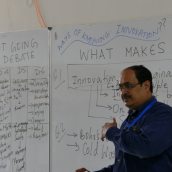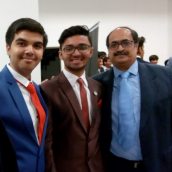Tourism boost as French envoy gives Kenya’s coast thumbs-up


Why Choose the Aga Khan Academy, Dar-es-Salaam
Admission to the Aga Khan Academy, Dar-es-Salaam, is based on merit. This is broadly defined as exceptional intellectual potential, leadership, a commitment to learning, strong sense of integrity, and the desire to work towards and instigate positive change.
As part of a network of Academies, we aim to provide exceptional students, from all backgrounds, with an outstanding education.
We seek students representing a diverse range of economic, cultural, ethnic and religious backgrounds. We look for students who have the ability and motivation to excel academically and who are or will be capable of demonstrating leadership in community service and other co-curricular pursuits.
"In my view, the most important thing a student can learn in any educational institution is the ability to keep on learning."We are more than just schools that strive to give their students a sound academic foundation. We emphasise the importance of academic excellence while instilling in students a sense of civic responsibility and the desire, ability and commitment to give back to their communities locally and globally.
Our educational approach measures success not just by academic achievement, but how students apply what they know to make the world a better place.
The overall educational programme is designed to foster students’ curiosity while providing them with the skills and intellectual confidence to engage with what they do not know and find answers and solutions.
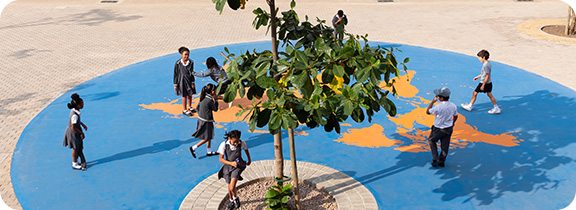
Why Choose the Aga Khan Academy Maputo
Admission to the Aga Khan Academy Maputo is based on merit. This is broadly defined as exceptional intellectual potential, leadership, a commitment to learning, a strong sense of integrity, and the desire to work towards and instigate positive change.
As part of a network of Academies, we aim to provide exceptional students, from all backgrounds, with an outstanding education.
We seek students representing a diverse range of economic, cultural, ethnic and religious backgrounds. We look for students who have the ability and motivation to excel academically and who are or will be capable of demonstrating leadership in community service and other co-curricular pursuits.
"But above all, it is my hope that these schools will stimulate creativity, intellectual curiosity and honest inquiry so that their students can adapt and thrive in a world of rapid change; can make informed judgements on life’s daily challenges, and place those judgements in an ethical framework."We are more than just schools that strive to give their students a sound academic foundation. We emphasise the importance of academic excellence while instilling in students a sense of civic responsibility and the desire, ability and commitment to give back to their communities locally and globally.
Our educational approach measures success not just by academic achievement, but how students apply what they know to make the world a better place.
The overall educational programme is designed to foster students’ curiosity while providing them with the skills and intellectual confidence to engage with what they do not know and find answers and solutions.
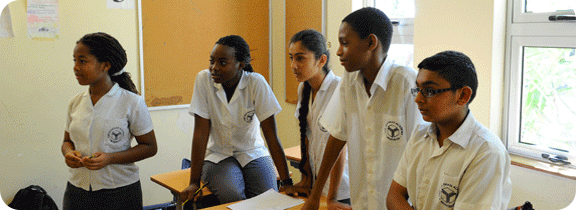
Why Choose the Aga Khan Academy Mombasa
Admission to the Aga Khan Academy Mombasa is based on merit. This is broadly defined as exceptional intellectual potential, leadership, a commitment to learning, strong sense of integrity, and the desire to work towards and instigate positive change.
As part of a network of Academies, we have been established to provide exceptional students from all backgrounds with an outstanding education.
We seek students representing a diverse range of economic, cultural, ethnic and religious backgrounds. We look for students who have the ability and motivation to excel academically and who demonstrate leadership in community service and other co-curricular pursuits.
We are more than just residential schools that strive to give their students a sound academic foundation.
We emphasise the importance of academic excellence while instilling in students a sense of civic responsibility and the desire, ability and commitment to give back to their communities locally and globally.
"In my view, the most important thing a student can learn in any educational institution is the ability to keep on learning."
Our educational approach measures success not just by academic achievement, but by how students apply what they know to make the world a better place.
The overall educational programme is designed to foster students’ curiosity while providing them with the skills and intellectual confidence to engage with what they do not know and find answers and solutions.
You can call the admissions team on their direct lines:
+254 (0) 736 200 008 or +254 780 223 703
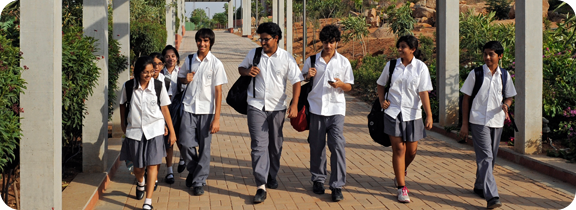
Why Choose the Aga Khan Academy Dhaka
Admission to the Aga Khan Academy Dhaka is based on merit. This is broadly defined as exceptional intellectual potential, leadership, a commitment to learning, strong sense of integrity, and the desire to work towards and instigate positive change.
As part of a network of Academies, we have been established to provide exceptional students from all backgrounds with an outstanding education.
We seek students representing a diverse range of economic, cultural, ethnic and religious backgrounds. We look for students who have the ability and motivation to excel academically and who demonstrate leadership in community service and other co-curricular pursuits.
We are more than just residential schools that strive to give their students a sound academic foundation. We emphasise the importance of academic excellence while instilling in students a sense of civic responsibility and the desire, ability and commitment to give back to their communities locally and globally.
"In my view, the most important thing a student can learn in any educational institution is the ability to keep on learning."
Our educational approach measures success not just by academic achievement, but by how students apply what they know to make the world a better place. The overall educational programme is designed to foster students’ curiosity while providing them with the skills and intellectual confidence to engage with what they do not know and find answers and solutions.
Sudipta Roy: Incomparably simple and unpretentious
Mr Sudipta Kumar Roy is the Diploma Coordinator at the Aga Khan Academy Hyderabad and comes with over 20 years of extensive experience in pedagogy. He joined the Academy in the year 2013 and since then has become a favourite amongst the students, peers and parents.
A Bengali born in Kanpur and brought up in Chennai, Mr Sudipta has an interesting background to his credit. His father Shri (late) Narendra Kumar Roy had worked in the Indian Ordnance Factories Service under the Mistry of Defence, and his mother Smt Namita Roy was a housewife. Mr Sudipta graduated in Physics from the Loyola College, Chennai and later pursued a Master in Science Education in Physics from Regional Institute of Education (RIE-NCERT), Mysore. His journey as a teacher formally began in June 1994. "I went to Bhutan after my father retired. I was there for 12 years and most of my early teaching-learning happened in Bhutan," he recalls.
When asked what persuaded him to choose a career in teaching and education, Mr Sudipta swiftly pushed back his thick eyeglasses and responded with a smile, "It was my passion to interact with young learners and support them in becoming successful global citizens. I have always considered myself to be a constant learner- by learning along with my students! I had spent most of my early teaching career in remote places where students did not have adequate means and resources to afford a good education. AKAH, on the other hand, supports students, regardless of their socio-economic backgrounds."
Like many others, Mr Sudipta too was swayed by the Academy's beautiful green campus built on a massive 100 acres land. But that was not the only reason why he decided to join the Aga Khan Academy Hyderabad. "The most important factor that lead me towards the Academy was the school’s philosophy which involves an ethical approach to leadership. In today's time, it is important that we also teach our children some valuable lessons that would eventually help them grow as responsible individuals."
Mr Sudipta believes that the Academy has helped him in acquiring knowledge and skill sets that are essential to succeed as a professional IB facilitator. He also gives credits to his students and quotes, "I thank all my students from whom I have developed many new skills especially in last 6 years. I think it has always been two-ways of learning that was happening. But I also understand that there is a lot more to learn in coming times and I will dedicate myself towards the vision of the Academy."
He has acted as a mentor to so many of Academy's senior school students and always took pride in their accomplishments. One such memory that he holds onto dearly is of his ex-student. "The day I got to know that my student had designed software for cruise control electric cars, I felt so happy that I couldn't stop myself from smiling all day! My student has now completed projects with IBM and has proven to be a successful lifelong learner! She is also working towards building technology for better sustainable future. The same day called for double celebrations as I got promoted to the role of a Diploma Programme Coordinator. This meant that I had bigger challenges set in front of me and a lot of expectations to fulfil. I could also feel the amount of faith my colleagues had in me!"
Physics being his favourite subject, Mr Sudipta enjoys designing study materials for students. He has a dedicated website and a Youtube channel where he publishes many useful resources that are easily accessible to anyone for free! Mr Sudipta is one of the many teachers in the Academy who works tirelessly for the betterment of students. His views on motivating students is thought-provoking! He says, "I believe that every child has a potential and all we need to do is to trigger that within the child. I have found that motivation plays a key role in the development of the child. When I was in Bhutan, I learnt that people measure their GDP with happiness!"
Incredibly soft-spoken, humble, helpful and a camera-shy, Mr Sudipta gently radiates a powerful persona. His integrity has not only earned him a favourable spot in the hearts of many students and colleagues but also makes him stand-out from the rest!
Moiz Rajwani: Video Spotlight
Through the inquiry-based International Baccalaureate curriculum, the Aga Khan Academies aim to develop young individuals who will have the capacity to lead and to build strong civil democratic societies in the future.
Hear from one of our alumni, Moiz Rajwani, Class of 2018, and see how we have been turning this vision into reality at the Academies. Moiz was awarded a scholarship at Western University in Ontario, Canada and enrolled in September 2018.
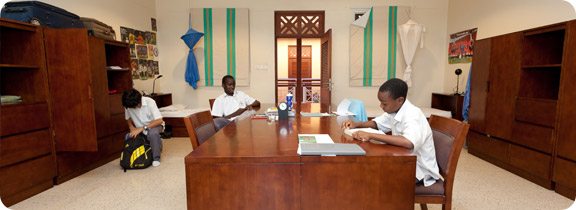
Residential Campus calendar
Please note these dates are subject to change. More specific, programme related information will be given as it becomes available.
| Date and Event | Notes |
| August 19, 2011 after 4:00pm Move-in day for new residential students |
Students move-in, accompanied by parent. Parents can stay the night in Mombasa and come back to campus on Saturday for breakfast. Parents depart after lunch. |
| August 20, 2011 before 6:00pm Move-in day for returning students |
Students to return to The Academy. Parents are encouraged to drop off their child and meet their new Dorm Parent. |
| September 6, 2011 Senior School Prize Giving |
On the 6th, awards ceremony at 2:45pm for Senior School students to recognize outstanding achievements from the 2010/2011 academic year. Parents are welcome to attend. |
| October 14-15, 2011 Parent-Teacher Conference and last day of school before mid-term |
Parents are highly encouraged to attend the Parent-Teacher conference during the day. Students are able to go home for the mid-term after meeting respective teachers. If parents do not attend, students still need to meet their teachers. Students will be able to leave for holidays only after meeting with teachers. Students are also able to remain on campus for the holiday. |
| October 23, 2011 Mid-term ends |
Students are required to report to school by 6pm. |
| December 9, 2011 Last day of school before December holidays |
Students are able to leave for holidays after 1:30pm. Please arrange flights after this time. The Academy officially closes on Saturday, December 10 after lunch. |
| January 3, 2012 December holidays end |
Students are required to report to school by 6pm. |
| January 6, 2012 Move-in day for new residential students |
Students move-in, accompanied by parent. Parents can stay the night in Mombasa and come back to campus on Saturday for breakfast. Parents depart after lunch. |
| February 15, 2012 Last day of school before mid-term and residential camp |
Students may leave after 4pm. Please do not make transport arrangements departing earlier than 5:30pm. Students may remain on campus for the holiday. For students in Years 6-8, the residential community goes on an expedition. The camp is mandatory for all students in Years 6-8 and is optional for older students. The cost of the trip is Ksh 10,000/student. |
| February 19, 2012 Mid-term ends |
Students are required to report to school by 6pm. |
| March 29-30, 2012 Parent-Teacher Conference and last day of school before April holidays |
Parents are highly encouraged to attend the Parent-Teacher conference during the day. Students are able to go home for the mid-term after meeting respective teachers. If parents do not attend, students still need to meet their teachers. Students will be able to leave for holidays only after meeting with teachers. Students are also able to remain on campus for the holiday. The Academy officially closes on Saturday, March 31 after lunch. |
| April 15, 2012 Easter holiday ends |
Students are required to report to school by 6pm. |
| June 22, 2012 Last day of school |
Students must clear with the Dorm Parent before they may leave. School ends at 12pm. Please do not arrange any transport before 4pm as students need to clear their belongings. |
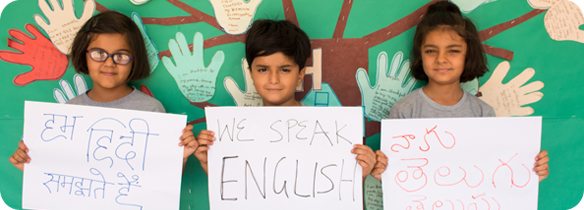
Aga Khan Curricular Strands
The Aga Khan Curricular Strands (AK Strands) are a unique part of the programme offered by the Aga Khan Academies. The AK Strands are areas of learning aimed specifically at developing knowledge, skills and attitudes required by future leaders.
Our goal at the Academies is to develop young people who have strong local roots and are also globally minded. They should be able to become leaders in whichever fields they choose.
To help achieve this goal, we have identified five areas of learning, the Aga Khan Curricular Strands, that we believe are important for our students. These are:
- Ethics
- Pluralism
- Cultures (with an emphasis on Muslim civilisations)
- Governance and Civil Society
- Economics for Development.
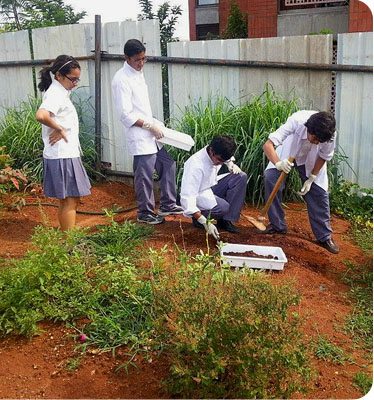 Implementing the AK Strands
Implementing the AK Strands
The Aga Khan Curricular Strands are not taught as independent subjects. Instead, we weave them into the existing subject areas of the academic curriculum. They help inform the selection of content and themes for study. The AK Strands also provide direction for school life outside the classroom in areas such as policy making, recruitment, student life and residential life.
Two of the AK Strands, Ethics and Pluralism, help students develop values and dispositions required by ethical leaders. Our students learn about these areas in theory and are also encouraged to practice what they learn in their everyday lives.
Through the other three AK Strands, our students learn about ideas that are important to the functioning of societies. In particular, they learn about how these ideas impact people’s lives in countries of the developing world. The knowledge they gain helps them understand key issues from both local and international perspectives.
The AK Strands in practice
The Aga Khan Curricular Strands were developed at the first Aga Khan Academy in Mombasa and are designed to be used in different cultural contexts. Teachers at the Aga Khan Academy Hyderabad helped tailor the AK Strands for the local environment in India.
For example, grade 3 students worked on a history and geography unit about Hyderabad that related to Economics for Development. The students examined how the physical features of the area influenced the city and its economic activity. They learned about employment today and also looked at traditional forms of work, including a visit to a nearby weaving cooperative. This unit helped the students understand both general ideas about economics and their impact on daily life in Hyderabad.
Through the Aga Khan Curricular Strands, our students develop attitudes and values that will help them throughout their lives. They also gain knowledge and understanding that will allow them to contribute positively to their societies in the future.
For more information on the educational programme offered at the Aga Khan Academy Hyderabad, please visit the Academic Programme page.
